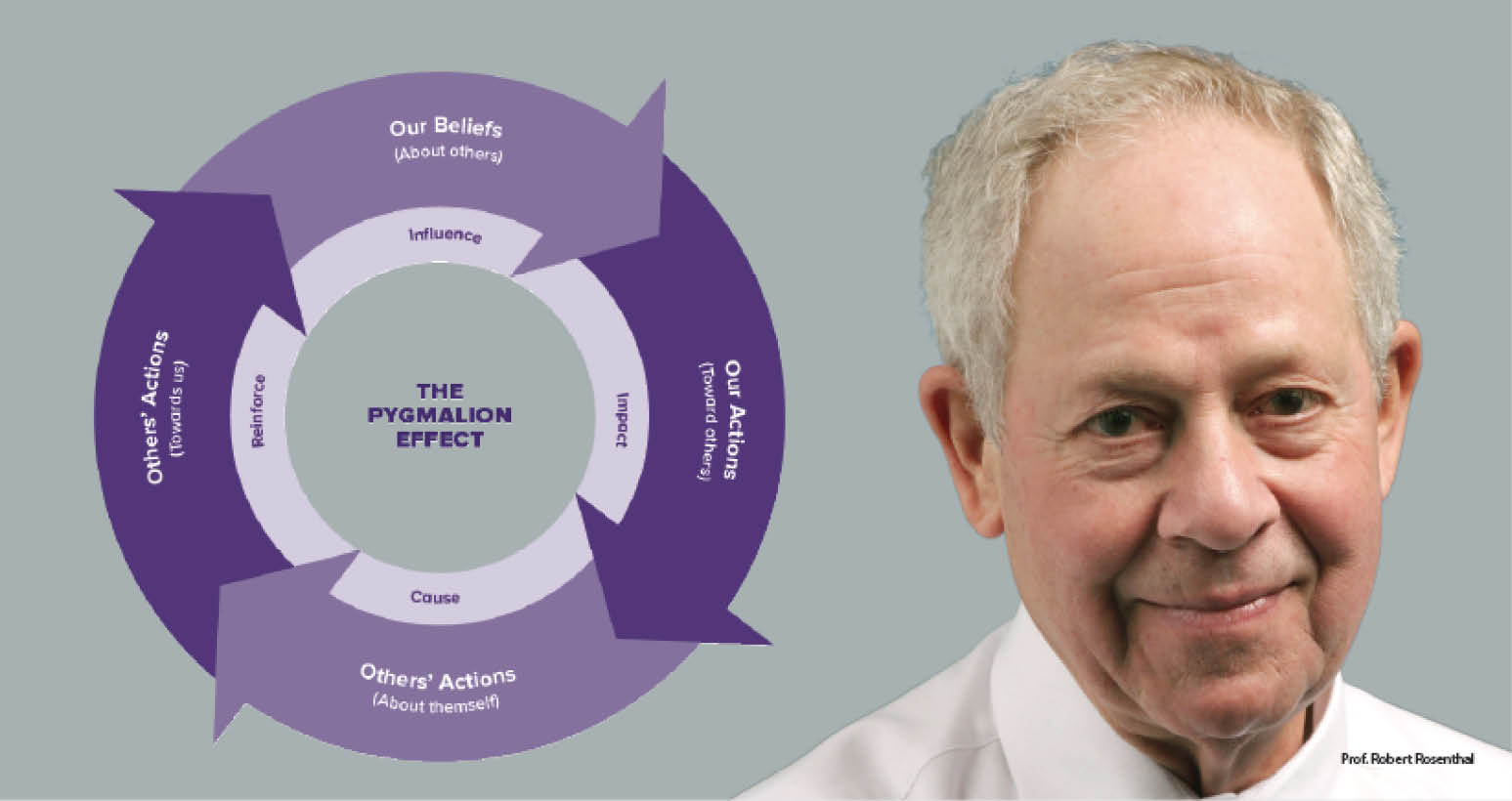In the 1960s a Harvard professor, Robert Rosenthal, wanted to know if teacher expectations influence student performance. Expecting “positive expectations to influence performance positively, and negative expectations to influence performance negatively.”
So he gave two sets of rats to two sets of coaches. The coaches were to train the rats to navigate a maze. However, they were giving different information about their rats. One group was told that their rats were smart and skilled. The other group of coaches was told that their rats were dumb.
Remember that these rats had the same abilities. They were randomly assigned to groups. But after a while, the performances of the two groups of rats were measured. The group whose trainers were told that their rats were smart and skilled outperformed the other group of rats.
The only difference was the information passed out to the trainers before they coached the rats. In other words, the only difference was caused by the expectations of the coaches. The group that performed better, expected its rats to perform better because they had the cognitive ability to do better.
Professor Robert Rosenthal in partnership with Lanore Jacobson then moved the experiment to a school setting. At the beginning of a school year, elementary school teachers were told that an IQ test revealed that a certain 20% of students in their class were smart and had great potential. “What Rosenthal and Jacobson hoped to determine by this experiment was the degree (if any) to which changes in teacher expectation produce changes in student achievement,” the authors wrote in their 1968 paper.
At the end of the academic year, the researchers wanted to know if there was any improvement in the students’ academic achievements. In other words, would the information given to their teachers cause the teachers to behave differently towards them in such a way that would improve the students’ performance?
It did. Their performance in schoolwork improved. This is called the Pygmalion Effect or the Rosenthal Experiment – named after Robert Rosenthal himself.
It got Pygmalion name from “Ovid’s Metamorphoses who was a sculptor and who fell in love with an ivory statue of his own making. Enamored by the beauty of his own making, Pygmalion begs the gods to give him a wife in the likeness of the statue. The gods grant the request, and the statue comes to life.”
What insight can we take from these studies?
It appears that the expectations we hold about others cause us to act towards them in such a way that leads to confirming our expectations. And when our expectations are confirmed. We consolidate our beliefs in their abilities which feeds our expectations further which causes us to act toward them in accordance with our beliefs which then nudges them to meet those expectations again and the cycle continues.
Robert Rosenthal himself said: “When we expect certain behaviors of others, we are likely to act in ways that make the expected behavior more likely to occur.”
I recall my time as a special teacher. My colleagues brought their weak students to me. To some of the teachers, these students were not only weak but also suffer from cognitive dysfunctions or learning disabilities. But after a while or even within a few days, I return these “abnormal” students to their classes and they often do as well or even better than their “normal” classmates. Why was this?
The students reacted to me differently because I knew that they were smart. They knew that I knew that they were smart and therefore confirmed my expectations. They rewarded me for my beliefs in their abilities.
This confirms the insight of the Rosenthal Experiment. A more lay description of this phenomenon is the self-fulfilling prophecy.
Another way of explaining this is that it feeds into our confirmation bias. We will like to see what we already believe even though the reality is a bit different in the real world.
We can take advantage of this insight and build high performances that are very much in need in our workplaces, schools, and homes.
One slightly different way I implement this in organizations that I consult for is to randomly tell staff that his or her boss told me that she was doing great. This makes them feel appreciated and encourages them to do better; because if the boss is already telling people of their good performance, they better not disappoint them.
In our homes, we can start behaving toward our children as if they were exceptionally good and they would confirm and reward our confidence in them. As a teacher, if your students are moving to the next class, tell their new teachers that your students are brilliant and have potential; this will ensure that the students are treated accordingly with positive expectations and respect.

 Join Daily Trust WhatsApp Community For Quick Access To News and Happenings Around You.
Join Daily Trust WhatsApp Community For Quick Access To News and Happenings Around You.


